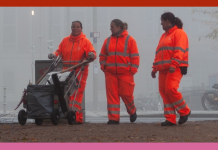Hearing loss can seriously impact one’s experience of work, so how can workplaces become more inclusive of deaf employees?
Hearing loss cases are increasing worldwide globally, as 1 in 5 adults are affected. As the working population ages, the number is predicted to rise.
The severity of an employee’s hearing loss can impact their experience at work. What steps can managers and employers take to create a more inclusive environment for deaf employees?
The researchers argue that regardless of the severity of an employee’s hearing loss, managers play a critical role in making them feel included by working to understand their abilities, perceptions and limitations and helping them build professional connections.
Employees with hearing loss experience isolation at work
A new study from researchers at Portland State, Oregon State and York universities finds that employees with hearing loss experience isolation at work, which can be detrimental to their career outcomes and job progression.
The effects of hearing loss at work depend on the severity of an employee’s condition, influencing how much they rely on professional connections for their sense of self, which then has downstream consequences for career outcomes.
This lack of career outcome improvement can be especially true among employees who have an unsupportive supervisor.
However, employees with more severe hearing loss tend to fare better, sadly due to their tendency to disengage from relationships with others at work. Those with severe hearing loss are more likely to experience awkward, anxious and frustrating interactions with co-workers and have a harder time building and maintaining professional connections.
By putting less importance on professional connections, and making them less sensitive to fewer professional connections, deaf employees’ sense of isolation is not as high.

Hearing needs fluctuate among people, so one-size-fits-all won’t always work
Even if self-isolation is an effective coping mechanism, those employees ultimately have worse career outcomes in the areas of attitudes, commitment, satisfaction and salary levels.
However, researchers note that tailored support can counter those negative experiences deaf employees face.
Some of the authors of this study are hard of hearing and offered insights into what tailored support could look like.
What does tailored support look like?
Lyons, whose hearing loss fluctuates from severe to profound to moderate, says his needs vary and it’s helpful when supervisors create a sense of openness for him to request certain accommodations. In one meeting, he might need to be seated next to the speaker; in another, he might need closed captions on the screen.
Lyons said: “That might not always be the case for me and my needs may change. But I really appreciate when supervisors are open and touch base on a regular basis: ‘How are things going? What can we do to make sure that you can fully participate?'”
Baldridge, who has experienced full hearing and deafness and now restored hearing with cochlear implants, said flexibility, such as focusing on the results and not how the work is done, is also important.
When it comes to facilitating professional connections, Baldridge said that organizing a one-on-one meeting or lunch in a quiet location would be more effective for an employee with hearing loss than trying to introduce them to people at a cocktail party.
Events outside of work should be considerate of deaf employees also
Supervisors can also connect them with employee resource groups or organizations such as the Hearing Loss Association of America (HLAA) and the Association of Late Deafened Adults (ALDA).
Lyons also said that it’s important for supervisors to create a culture of respect and understanding among all of their employees: “They can advocate on my behalf so co-workers don’t start to think negatively about me if I don’t attend a loud, busy even. That could lead to fewer opportunities, which would negatively affect my career.”











